In celebration of Women’s History Month, our team has embarked on an inspiring series titled “Women In Tech Focus” designed to spotlight and elevate the profiles of African women in the technology sector. These remarkable individuals are propelling their careers forward at an impressive pace and laying the groundwork for future generations of women to follow in their footsteps.
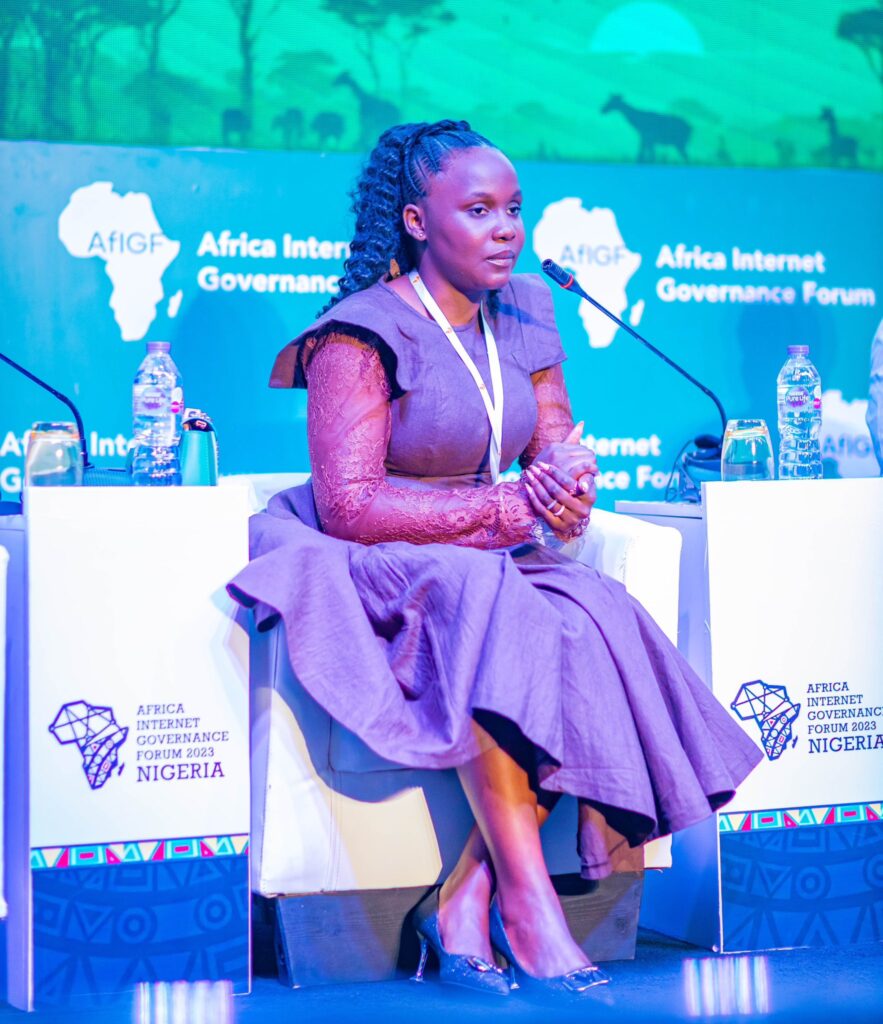
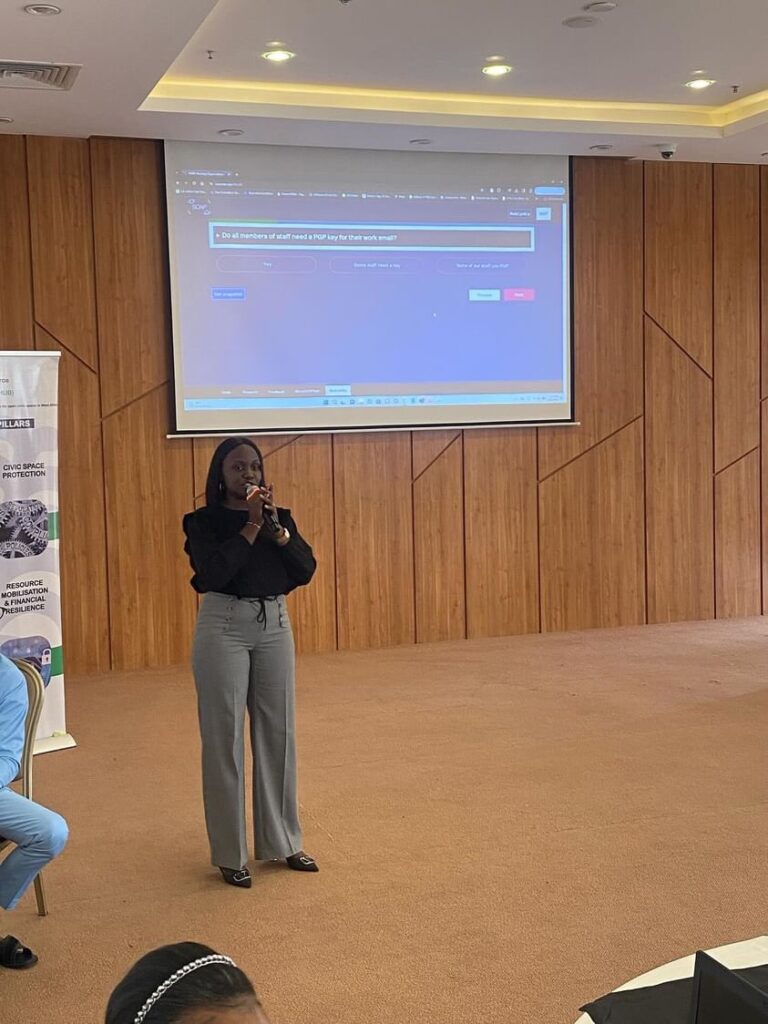
To kick off this series, we had the privilege of engaging in an enlightening conversation with a distinguished cybersecurity professional. Her story is one of passion, dedication, and a deep-seated desire to make a difference. Beyond her commitments to safeguarding digital spaces, she harbors a special dedication to mentoring young women. Her efforts are aimed at encouraging them to explore the vast opportunities in technology, to pursue their ambitions with fervor, and to overcome any barriers they may face along their journey. Let’s dive in.
Can we get to know you?
I’m Nanbaan Pwaspo, a cybersecurity professional and advocate for internet freedom from Jos, Nigeria, with a Bachelor’s in Cybersecurity from the Air Force Institute of Technology, Kaduna. With 3 years in digital security and 15 months in humanitarian and civil work, my focus is on privacy, censorship, surveillance, and disinformation. Starting my cybersecurity journey at 17, I’ve had an enriching experience, becoming the first Cybergirls Africa ambassador in 2021 and a passionate volunteer for inclusion in cybersecurity. In 2023, I was honored as the youngest Internet Society youth ambassador and contributed significantly to Cybersafe Foundation. My guiding principles are resilience and diligence, fueling my drive to overcome challenges and succeed. I’ve spent over a year in the civil society sector, beginning as a Digital Security Research Assistant, investigating APT groups across Asia, Africa, and the Middle East. At Resilience Technologies, I’ve led efforts to educate journalists, human rights defenders, and vulnerable communities in sub-Saharan Africa on digital security, offering tailored training for online protection. Outside of work, I love exploring new places, reading novels, and enjoying time with loved ones.
What initially sparked your interest in cybersecurity?
As a child, I enjoyed attending Vacation Bible School with my best friend, diving into yearly adventures with themes like Agency D3 in 2014, where we explored the truths about Jesus through fun investigations. This experience sparked an early interest in investigation and crime fighting. Initially planning to study medicine, my path unexpectedly shifted to mining engineering, and then, upon discovering a cybersecurity program at AFIT in 2018, I found my calling. My journey in cybersecurity truly began in 2020 during the COVID-19 lockdown when I started a blog and landed my first job in the field, thanks to a mentor’s notice. Since then, I’ve been passionately advancing my career in cybersecurity, with each step bringing remarkable progress and achievements.
Did you have any role models or mentors who influenced your career path?
Mentors often pave the way for us, offering their wealth of experience and valuable advice to aid our career journey. I’ve been lucky enough to have three key mentors—Confidence Staveley, Elizabeth Kolade, and Mr. X—who have made a profound impact on my path from my second year at university onward. Their collective guidance has been instrumental in my upskilling, avoiding potential setbacks, and achieving growth both professionally and personally. They’ve been a constant source of challenge, encouragement, and direction, nurturing what has become beautiful and enriching relationships. Truly, having such mentors has been an incredible gift!
Can you tell me a bit about your educational background and any relevant certifications you’ve obtained so far?
I pursued my Cybersecurity studies at the Air Force Institute of Technology in Kaduna, Nigeria. These four years were filled with learning, growth, and preparation for the experiences that shaped who I am today. Being part of the pioneering batch, we faced numerous challenges, but this didn’t deter my commitment to self-learning, which significantly contributed to my standing out. This dedication not only enhanced my academic journey but also allowed me to gradually build a career beyond the classroom walls. Among the numerous courses and training programs I’ve undertaken in cybersecurity, the CompTIA Security+ certification laid my foundational knowledge, while the Mandiant Cyber Threat Intelligence Certification further solidified my expertise in the field.
What specific area of cybersecurity do you specialize in (e.g., threat intelligence, penetration testing, incident response)?
This is somewhat subjective, but let’s choose Cyber Threat Intelligence. Throughout my various roles, I’ve engaged in vulnerability assessments, conducted intelligence research, and devoted attention to education and awareness initiatives.
Can you walk us through a typical day or week in your role as a cybersecurity professional?
As a Digital Security Associate at Resilience Technologies, my daily activities revolve around collaborating with journalists, social justice activists, CSOs, and vulnerable groups to combat the array of security threats prevalent on the internet today.
A typical day at Resilience Technologies usually kicks off with several meetings with my team to outline our objectives for the week and pinpoint the tasks and responsibilities that require my focus. In addition, I’m continuously engaged in researching and staying abreast of new and existing threats and attacks that could potentially impact civil society organizations.
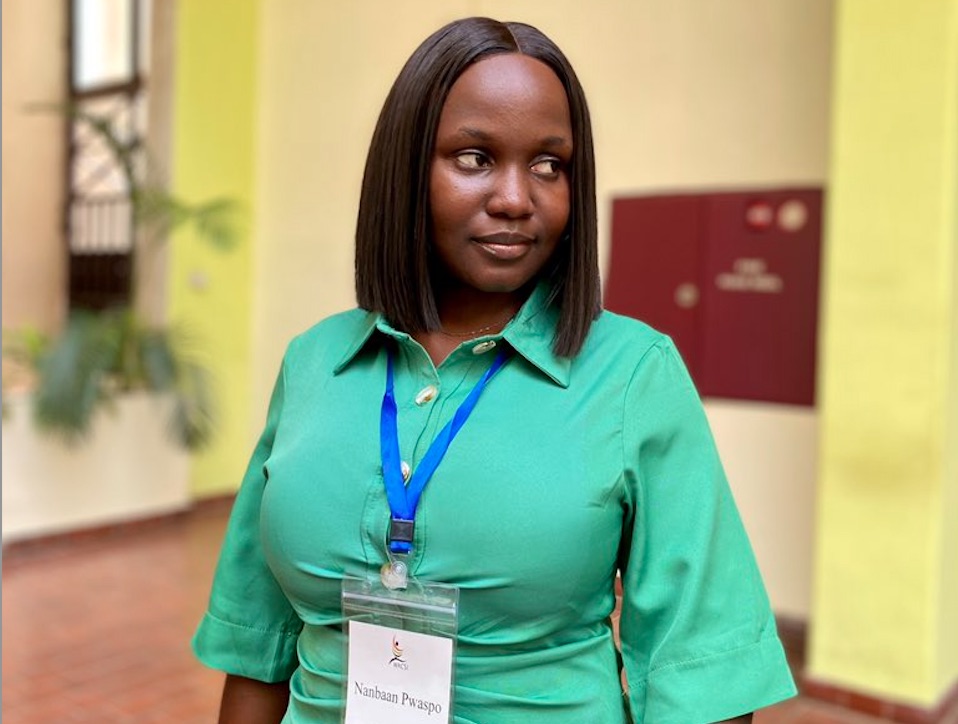
I conduct vulnerability assessments and digital security wellness checks for these organizations. Based on my findings, I provide practical recommendations to enhance their digital security posture.
A significant portion of my role is also dedicated to leading initiatives to raise awareness about digital security risks among vulnerable groups. I frequently conduct customized training sessions to arm human rights activists and at-risk communities with essential cybersecurity skills.
What are some of the biggest challenges you face in your work as a woman, and how do you overcome them?
I feel incredibly fortunate in my journey, a sentiment not always common among women in my field. The growth I’ve experienced over the past year has been transformative, propelling me from where I was to the significantly evolved person I am today. A pivotal force behind this evolution has been the mentorship of an exceptional individual, a man whose support has not only advanced my career but also instilled in me a profound sense of confidence and clarity. He’s been instrumental in highlighting my areas for improvement, bolstering me through challenges, and steering me towards opportunities that catalyze my growth, all the while affirming my potential as a superstar.
Encountering bias and stereotyping is, unfortunately, part of my external environment, yet these instances do little to sway my focus. From men who doubt my capabilities and question my efficiency, to those who argue that training women in tech is futile due to a perceived lack of resilience and a propensity to easily surrender—these are scenarios I’ve learned to dismiss. There have also been those who offer support, guidance, or assistance with less than noble intentions. Ironically, these challenges serve as a source of motivation, reinforcing my belief that my actions are correct and significant, especially when faced with attempts to discourage or sidetrack me.
What are some of the most rewarding aspects of working in cybersecurity?
The most gratifying part of my work is witnessing the immediate impact it has—whether on individuals, society, or women who see themselves in me. Observing the tangible effects of my efforts is both exhilarating and motivating, pushing me to strive for excellence.
Another enriching aspect is the supportive nature of the cybersecurity community. Regardless of one’s experience level, with determination and the right connections, growth is assured. This sense of camaraderie and support is invaluable.
Furthermore, cybersecurity is a field that demands continuous learning, keeping me engaged and alert. It evolves with the world, ensuring that our work remains relevant and impactful at every turn. Over the years, my journey has encompassed learning, practicing, undertaking projects, shifting my career trajectory, and seamlessly reinventing myself.
My progress to date has been significantly influenced by a visionary woman who was committed to empowering young girls across Nigeria. This experience has instilled in me a guiding principle: living a fulfilling life involves using our talents to serve others. With my talents, skills, and compassion, I am eager to take chances on others, invest in their potential, and empower them just as I have been empowered.
What advice would you give to young women interested in pursuing a career in cybersecurity?
My advice is to maintain a steadfast purpose. Despite societal pressures, unconscious biases, and discouraging statistics, it’s crucial not to be deterred by rejection. Reflecting on my own experiences, out of several opportunities I pursued this year, I faced five rejections in just three months. Yet, the one acceptance I received opened the door to an incredible opportunity that promises life-changing projects and experiences. Often, a ‘no’ is simply a ‘not yet.’
Throughout my career, being underestimated has been a common challenge. Yet, my commitment to excellence and the pursuit of greater achievements has been a driving force.
Embrace humility and connect with the right people. Networking and collaboration are key to personal and professional growth.
As a woman, there will be challenges specific to gender, but when opportunities arise, seize them and stand out.
Believe in yourself. Doubt and lack of confidence can overshadow your achievements. Recognizing your worth can make your journey less stressful.
Finally, the Cybersecurity Industry is witnessing a rise in female empowerment. While still predominantly male, the industry is evolving, with women carving out their space and fostering a unique solidarity.
Are there any specific resources (books, websites, workshops) you’d recommend for someone wanting to learn more about cybersecurity?
For those keen on entering the cybersecurity field, I recommend starting with free resources like YouTube and Udemy, as well as other free online courses. Engage with cybersecurity professionals and communities where you’ll find supportive people, initiatives, and resources to guide you. Noteworthy individuals include Confidence Staveley, founder of the Cybersafe Foundation, and Dr. Iretioluwa Akerele, a career coach and mentor dedicated to helping people start a cybersecurity career.
For structured learning, HackTheBox Academy and TryHackMe are excellent for hands-on labs and challenges, offering environments to practice both attack and defense techniques. Cybrary provides a wide range of courses, labs, and certification prep, blending theoretical knowledge with practical exercises. Platforms like PwnTillDwn, VulnHub, and CyberSecLabs are great for further hands-on practice through labs and challenges, catering to various skill levels and offering both free and subscription-based content for a more comprehensive learning experience.
What are some of the misconceptions you encounter about cybersecurity as a young woman in the field?
Firstly, a common hurdle I face is inexperience. Due to my youth and ambition for significant opportunities, I’m sometimes deemed unqualified based on age, years of experience, or lack of specific certifications.
Secondly, there’s a misconception that cybersecurity is solely about technology. Many overlook that it’s a blend of technology, people, and processes. Ignoring the human aspect means missing out on understanding how human behavior and organizational culture influence security.
Thirdly, the belief that cybersecurity is prohibitively expensive is another misconception. For learners, there are numerous free resources and for organizations, achieving a solid security posture doesn’t have to break the bank.
Lastly, cybersecurity is not just a cost; it’s an investment with benefits. Moreover, the field is not limited to tech companies; cybersecurity skills are versatile and in demand across all sectors, offering opportunities for those considering a career pivot.
What are your predictions for the future of cybersecurity?
My predictions for the future of cybersecurity include:
- Artificial Intelligence (AI) and Machine Learning (ML) will advance cybersecurity through automated threat detection and rapid response, significantly improving defense mechanisms.
- Quantum encryption will emerge as a groundbreaking encryption technique, potentially making current hacking methods ineffective and vastly increasing security levels.
- The demand for professionals possessing both technical and business skills will grow, with hybrid roles in cybersecurity, risk management, compliance, and law becoming more common.
Thank you for your time, it’s a pleasure getting to talk to you.
You’re welcome! It is truly a pleasure for me as well.






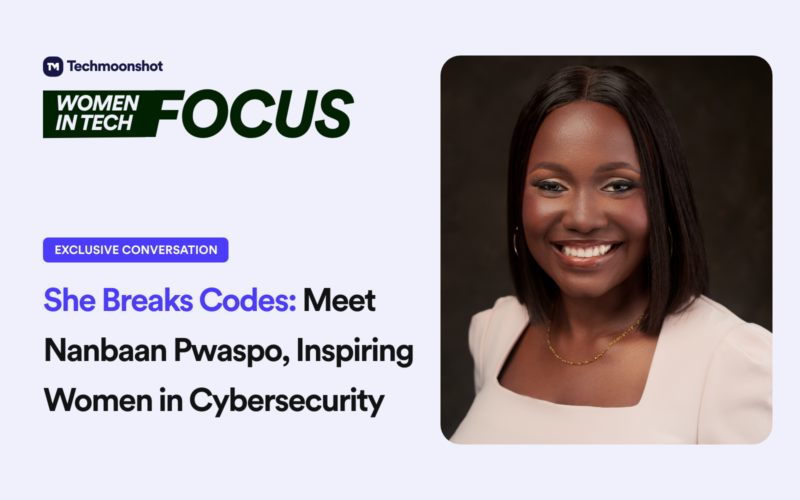
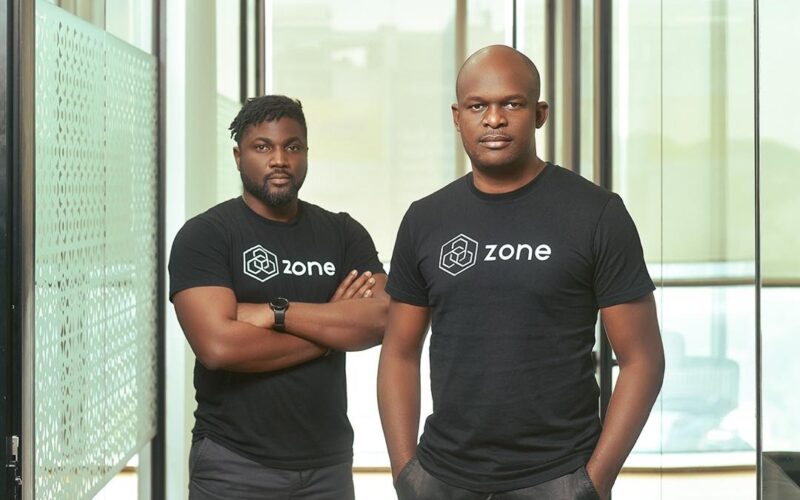

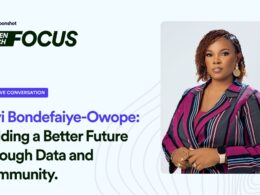
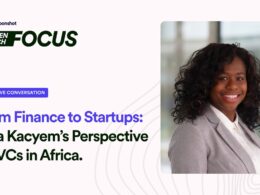

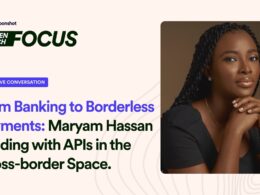
This was really insightful. I really enjoyed reading this. Rooting for Nanbaan Pwaspo
Wow, this was such an uplifting story to read over my morning coffee! Nanbaan’s journey, from her early interest sparked by Vacation Bible School to becoming a cybersecurity powerhouse. It’s stories like hers that light up the path for so many young women dreaming of a career in tech but not knowing where to start.
This is amazing Nanbaan Pwaspo , from sharing your experiences, challenges and journey on Cyber Security, your Dedication, Excellence and Passion never discouraged but putting in a lot of effort ,I have gained alot and would continue not to relax but advance in technology, thank you once again Nanbaan Pwaspo for sharing your experiences on Cyber Fields .